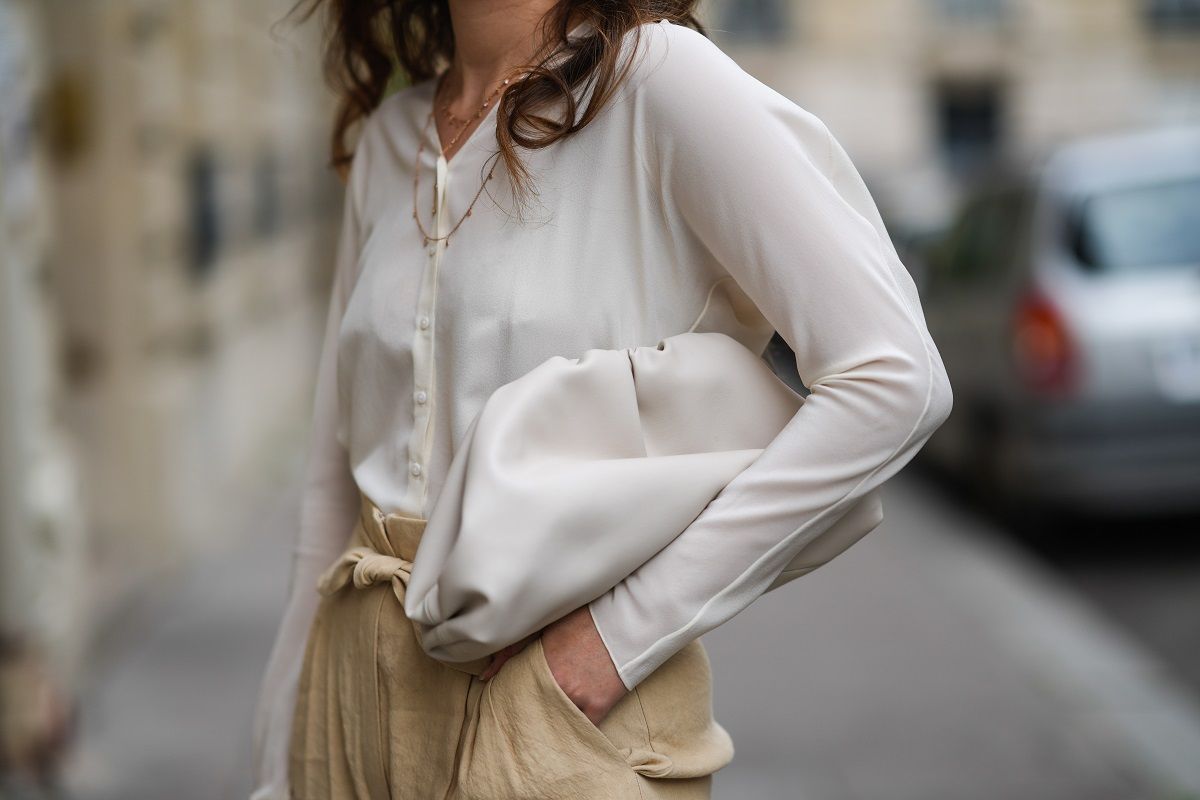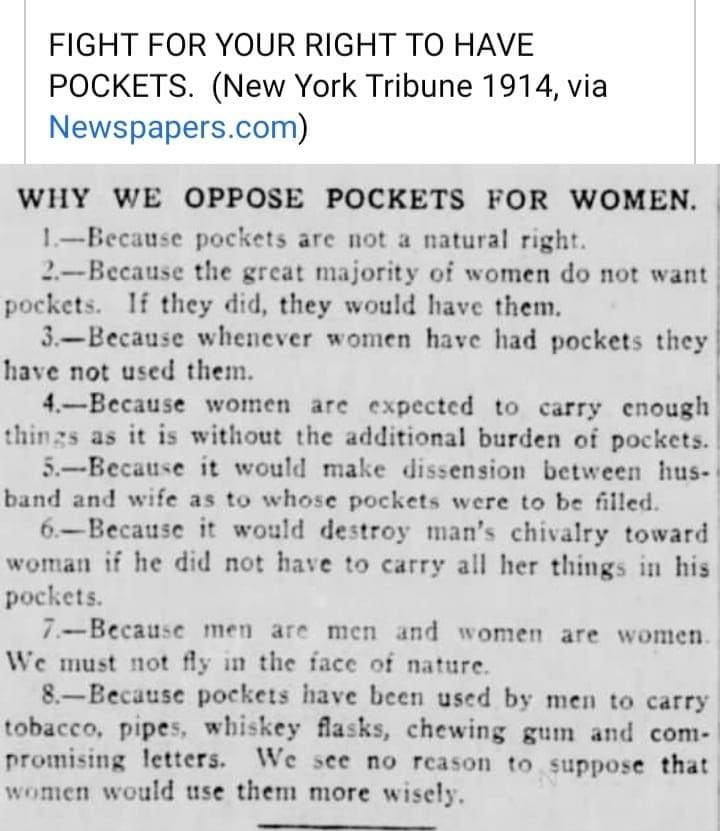The traditional lack of pockets in women's clothing has long been the subject of criticism that it reflects a sexist mentality:
Writing for The Spectator in 2011, Paul Johnson offers a witty, thumbnail history of the sartorial convention of the pocket, and he caps his piece with a 1954 Christian Dior bon mot: "Men have pockets to keep things in, women for decoration." Tease apart that quote and you get a fairly essentialist view of gender roles as they play out in clothing. Men’s dress is designed for utility; women’s dress is designed for beauty. It’s not a giant leap to see how pockets, or the lack thereof, reinforce sexist ideas of gender. Men are busy doing things; women are busy being looked at. Who needs pockets?
Thus, when social media users encounter reproductions of a 1914 newspaper column titled "Why We Oppose Pockets for Women," many of them take it at face value, reading it as a list of arguments advanced a century ago to defend why women's clothing shouldn't have pockets:
In fact, this column was a bit of satire by Alice Duer Miller -- "the funniest and most influential feminist you’ve never heard of" -- who penned a weekly column titled "Are Women People?" for the New York Tribune between 1914 and 1917.
Miller was a suffragist, and she wrote "Why We Oppose Pockets for Women" as a spoof to "expose the structural illogic of some of the most frequently used arguments in the anti-suffrage campaign," such as the following:
1. Because no woman will leave her domestic duties to vote.
2. Because no woman who may vote will attend to her domestic duties.
3. Because it will make dissension between husband and wife.
4. Because every woman will vote as her husband tells her to.
5. Because bad women will corrupt politics.
6. Because bad politics will corrupt women.
7. Because women have no power of organization.
8. Because women will form a solid party and outvote men.
9. Because men and women are so different that they must stick to different duties.
10. Because men and women are so much alike that men, with one vote each, can represent their own views and ours too.
"Why We Oppose Pockets for Women," along with other columns by Miller, were collected in the book "Are Women People? A Book of Rhymes for Suffrage Times," which included other pieces by her written in a similar vein:
Why We Oppose Women Travelling in Railway Trains
1. Because travelling in trains is not a natural right.
2. Because our great-grandmothers never asked to travel in trains.
3. Because woman's place is the home, not the train.
4. Because it is unnecessary; there is no point reached by a train that cannot be reached on foot.
5. Because it will double the work of conductors, engineers and brakemen who are already overburdened.
6. Because men smoke and play cards in trains. Is there any reason to believe that women will behave better?
Why We Oppose Schools for Children
(By the Children's Anti-School League.)
1. Because education is a burden, not a right.
2. Because not one-tenth of one per cent of the children of this country have demanded education.
3. Because if we are educated we should have to behave as if we were and we don't want to.
4. Because it is essentially against the nature of a child to be educated.
5. Because we can't see that it has done so much for grown-ups, and there is no reason for thinking it will make children perfect.
6. Because the time of children is already sufficiently occupied without going to school.
7. Because it would make dissension between parent and child. Imagine the home life of a parent who turned out to be more ignorant than his (or her) child?
8. Because we believe in the indirect education of the theatre, the baseball field and the moving picture. We believe that schools would in a great measure deprive us of this.
9. Because our parents went to school. They love us, they take care of us, they tell us what to do. We are content that they should be educated for us.

